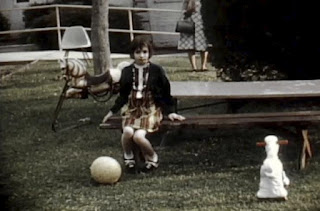Greek Mythology : Hermes’ Cattle Theft
As the myth goes, Hermes was born in a cave to Maia, one of Zeus’ many lovers. After his birth, he jumped out of his crib and travelled all over the Earth, memorizing all crooks and crannies in the mortals’ world, and then stole his half-brother, Apollo’s cattle. There are variations, but my favorite is the version that said Hermes ate one of the cattle, then used an empty turtle shell with the eaten cow’s skin to create the lyre. After all this work done, he sneaked back into his crib. Apollo, however, found out, and went to the cave to complain to Maia, who of course refused to believe because her “innocent” son was back in the crib already. So Apollo dragged Hermes to Zeus, at which point Hermes confessed. But Zeus, being the cool god he was, simply laughed and thought that Hermes was brilliant. To please Apollo though, Zeus still ordered Hermes to return the cattle. Since Hermes already ate one, Apollo obviously made a big deal about it. So Hermes, knowing that Apollo was also the god of music and was very fond of music, calmly took out his lyre and played a beautiful tune. Apollo was entranced by the new instrument, so he made a deal with Hermes: if Hermes gave him the lyre, he would forget about the missing cow and would even give him a gift, the winged staff with two snakes entwining each other. It was a great deal, so Hermes accepted it. Through this event, Zeus recognized Hermes’ intelligence, so he raised his son to Olympus and gave him the winged sandals and winged cap, appointing him as the messenger.
Let me say that I think stealing is wrong and one shouldn’t do it unless it is extremely necessary. I have to admit that the reason this is my favorite Greek myth is mainly because Hermes is my favorite Greek god. He’s witty, smart, and can be potentially powerful, since he’s the only god able to travel swiftly between all three worlds of gods, mortals, and the dead. This myth tells the best of his ability: the way he sneaked back to the crib to have his mother on his side, the way he still prepared for the worst case scenario by creating the lyre because he stole from a god very fond of music, the way he memorized all paths on Earth. In many myths, Hermes is portrayed as the trickster, the Greek version of Loki, which is correct. And this myth was the start of Hermes, the messenger and the trickster, either for his own satisfaction or for the good of mankind.




Comments
Post a Comment